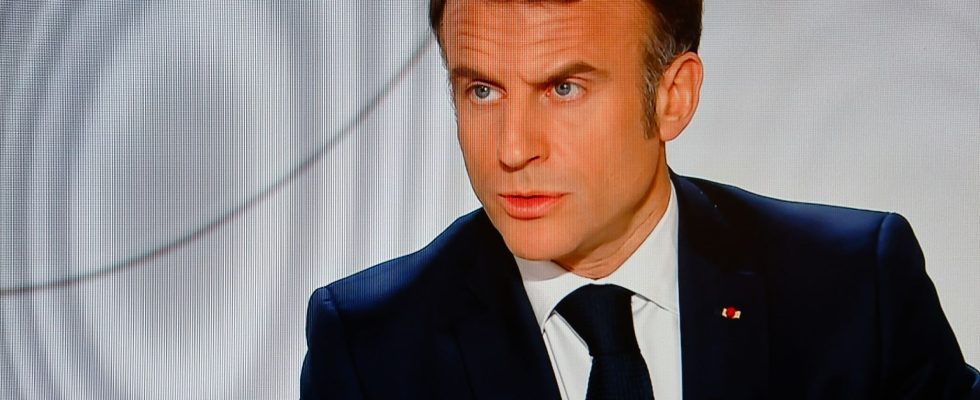Placed both under the sign of appeasement between France and Germany but also of the surge in favor of Ukraine, a summit bringing together the French President, Emmanuel Macron, the German Chancellor, Olaf Scholz, and the Prime Minister Polish, Donald Tusk, takes place this Friday March 15 in Berlin. It precedes an important European summit in Brussels on March 21 and 22.
Information to remember
⇒ Josep Borell anticipates a new Russian offensive “this summer”
⇒ Macron, Scholz and Tusk at the summit in Berlin this Friday
⇒ The presidential election begins in the Russian Far East
Pro-Russian mayor of Donetsk announces the death of three children
Three children were killed in a strike in Donetsk, a city in eastern Ukraine controlled by Russian forces, its pro-Russian mayor Alexei Koulemzin said on Friday.
“Following a barbaric nighttime strike in the Petrovsky district of our city by Ukrainian Nazis,” a house was targeted and caught fire, Alexei Kulemzin wrote on Telegram. “Three children were killed,” he said.
Drone attacks in the night
Russia and Ukraine said Friday they had shot down several enemy drones, the day Russians began voting in presidential elections scheduled until Sunday.
The Russian Defense Ministry said in a statement that it had destroyed five Ukrainian drones and nine missiles in total over the Belgorod region, which borders Ukraine. Two other drones were neutralized over the Lipetsk region, located about 400 km south of Moscow, according to regional governor Igor Artamonov.
Borell urges Western allies to act ‘quickly’
“The next few months will be decisive.” The head of European diplomacy, Josep Borrell, urged Western allies to act “rapidly” from Washington, where he went after an appearance before the UN Security Council in New York. “Many observers expect a Russian offensive this summer and Ukraine cannot wait until the result of the next American elections,” he warned.
And he continued: if Russian President Vladimir Putin “wins this war and conquers Ukraine and sets up a puppet regime in kyiv, like the one we already see in Belarus, it won’t stop there.” Josep Borell also insisted on the “enormous repercussions for the United States and for the alliance systems built around the United States and Europe.”
Macron, Scholz and Tusk at summit in Berlin
The French leaders, Emmanuel Macron, and German leaders, Olaf Scholz, will meet this Friday March 15 in Berlin. Their meeting at the chancellery will be followed by a meeting with the Polish Prime Minister, Donald Tusk, on aid to Ukraine and placed under the sign of appeasement.
Sending ground troops, long-range missiles, mounting aid to kyiv… differences have multiplied between France and Germany, weakening the allies’ message of unity. This was demonstrated by the bitter exchanges between Emmanuel Macron and Olaf Scholz following the conference in support of Ukraine organized at the Elysée on February 26.
The Polish Minister of Foreign Affairs, Radoslaw Sikorski, nevertheless said he was “confident about what this three-way summit could represent”: “the internal pressures within the coalition [allemande] and international pressure on Chancellor Scholz encourages more action”, he believes in an interview published this Thursday in the columns of West France. An important European summit in Brussels awaits them subsequently, on March 21 and 22.
Europeans must be ready to “respond” to an “escalation” by Russia, insists Macron
During an interview with the TF1 and France 2 television news, Emmanuel Macron said this Thursday, March 14, that Europeans must be ready to “respond” to an “escalation” by Russia. However, the Head of State assured that Paris would not take the “initiative” of military action: “We will never lead an offensive […]. France is a force for peace.” He thus intended to reassure after having sowed trouble, in public opinion and among Kiev’s other allies, by judging at the end of February that the sending should not be ruled out in the future , Western soldiers in Ukraine.
“Russia has become a power that wants to expand and it is certain that it will not stop there,” he nevertheless asserted on the social network X in response to questions from Internet users. “If we leave Ukraine alone, if we let Ukraine lose this war, then for sure Russia will threaten Moldova, Romania, Poland,” he warned.
Addressing the French directly through this interview, Emmanuel Macron, however, once again assumed his position. “If Russia were to win […] we will no longer have security” and the “credibility of Europe will be reduced to zero”, he insisted.
“We have put too many limits, if I may say so, in our vocabulary,” explained the President of the Republic, recalling that the West had said, after the Russian invasion of Ukraine two years ago, that they would “never” send tanks or medium-range missiles to kyiv, before crossing these red lines in the face of the evolution of the conflict. “If the situation were to deteriorate, we must be ready and we will be ready,” he insisted.
Residents of the Russian Far East have started voting
Polling stations opened at 8 a.m. local time this Friday (8 p.m. GMT Thursday) on the Kamchatka Peninsula and Chukotka, two remote regions located in the far east of Russia. In total, the vote will be held over three days, including in the territories occupied by Moscow in Ukraine and in Transnistria, a pro-Russian separatist territory in Moldova.
Shortly before the start of the vote, Vladimir Putin, in power for 24 years, urged his compatriots not to “deviate from the path” and to vote “patriotically” in these “difficult” times. The outgoing head of state will face three candidates without stature who oppose neither the offensive in Ukraine nor the repression which has eradicated all opposition. The only opponent to have attempted to run, Boris Nadejdine, saw his candidacy rejected.
